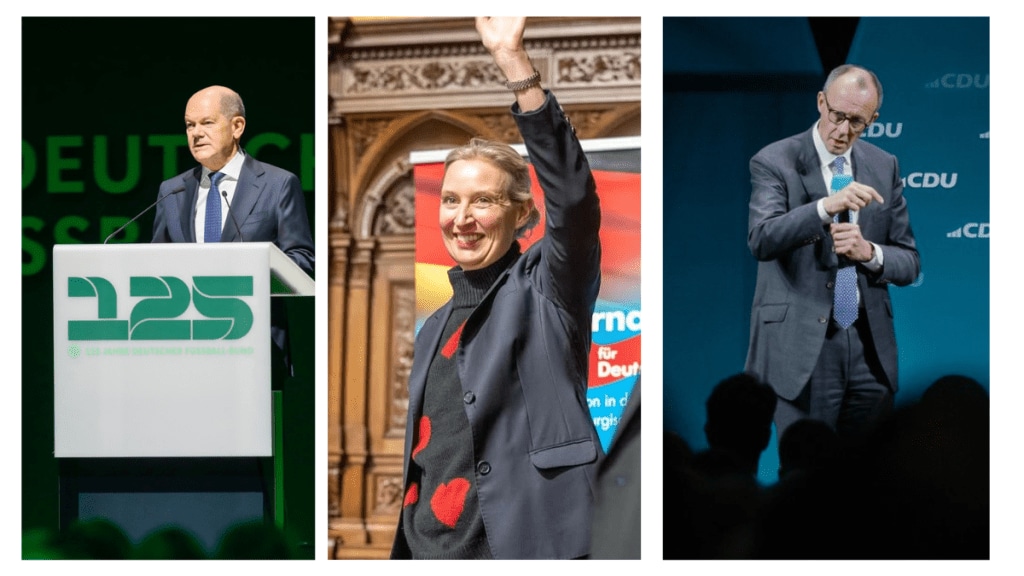The lower house of the German parliament, Bundestag is ready to roll into elections on February 23. A representation of the Federal Republic of Germany, Bundestag is the most important body with decisive legislative authority. Here is all you need to know, from key issues to key players for this election.
In light of chancellor Olaf Scholz’s coalition collapse in November 2024 after sacking the cabinet finance minister, Christian Lindser, a vote of no-confidence in January 2025 paved the way for this snap election. By dissolving the 20th Bundestag in December, the Federal President set in motion the proposal of the former chancellor.
Contesting Parties
Germany has two centrist parties; the Scholz’s Social Democrats (SPD) and the opposition conservatives,an alliance of the Christian Democrats (CDU) and their Bavarian sister party, the Christian Social Union (CSU) led by Friedrich Merz. Furthermore, smaller parties such as Green and the Alternative for Germany (AfD) have been taking over the vote share of these parties.
Running for the chancellor candidature, these players in the Bundestag raise certain key issues.
Ukraine
Being a top priority for political and military interests, the contenders are divided in their opinion. The mainstream parties all favour Russia’s invasion while AfD and BSW want to put an end to the weapon deliveries to Kyiv. To reinforce their good relations with Moscow, Scholz follows a more cautious tone emphasising the need for diplomacy in this sensitive situation.
German Economy
Economic revival is also on the agenda as Scholz has proposed “incentivizing private investment and modernising infrastructure”. The CDU/CSU manifesto has proposed extensive financial relief for companies and citizens, including income and corporate tax cuts, and lower electricity charges. They have not said how these would be financed. The AfD led by Alice Weidel wants Germany to ditch the euro, reintroduce the Deutsche Mark and potentially leave the EU. With their anti-Islam and anti-migration stand, the AfD also called for closing borders and denying the right to family reunification to asylum seekers.
Relations with the US
With the Trump administration in power, the possibility of increased tariffs and lower military support for Europe is a rising concern for Germany. A larger proportion of German exports sees itself in the US. The Greens stand in support of bilateral communication with the US government, its main security ally.
Given the context and history of these parties in Germany, it seems unlikely that a majority government will take shape as per sources. The two primary centre-left and centre-right parties have previously collaborated in Bundestag coalitions, and alliances involving the Greens or FDP are fairly common.
With Reuters inputs

